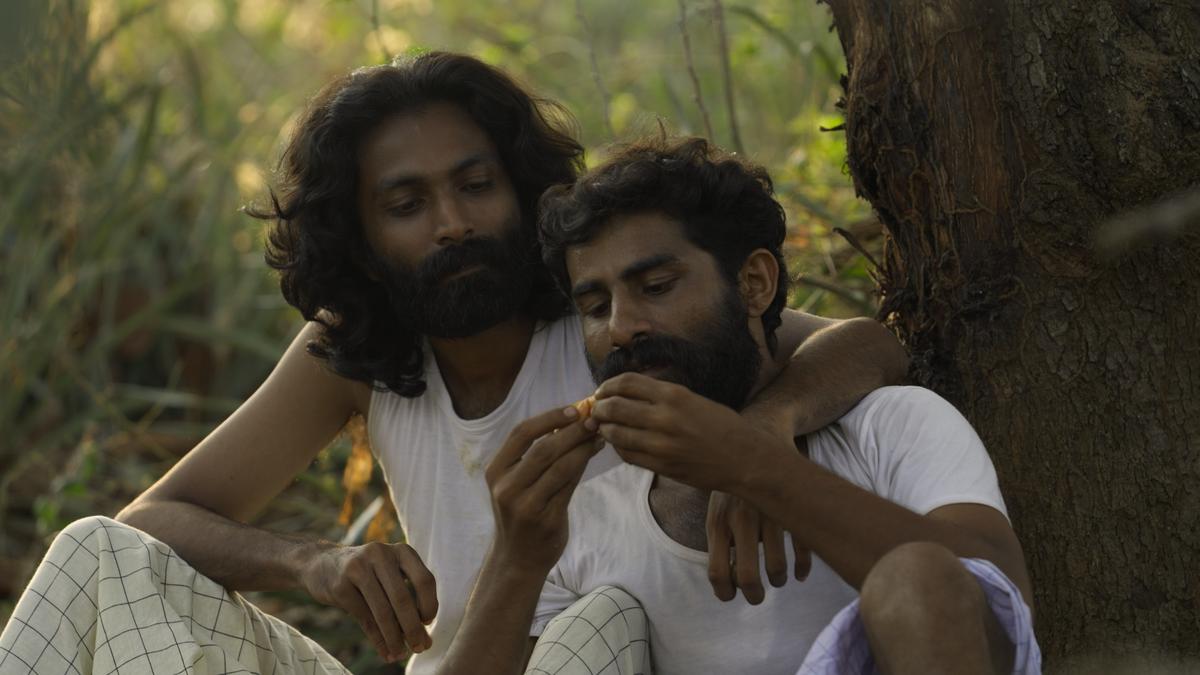A view of Velipadu | Photo courtesy: Special Arrangement
Mainstream Malayalam cinema tells gay stories, largely honestly, but rarely from a gay perspective. While some in the community feel that some of these attempts, mostly through a ‘straight lens’, are doing injustice to homosexuality and inadvertently promoting homophobia, writer, artist/photographer and now filmmaker Jijo Kuriakose applauds efforts to bring the gay experience into the mainstream.
“I have been watching mainstream movies [on homosexuality] Like Kathal: Core But the gay gaze is missing. We should speak about/for ourselves,” says Jijo. He appreciates the film and doesn’t consider it gay-phobic. Some in the LGBTQI community saw it that way, for example, because of how Mammootty’s character was forced to come out. When such films are made in the mainstream, it sparks discussions, which Jijo finds important.
Velipadu (Revelation), his 25-minute short film, focuses on the experience of being gay in the local context. While there are plenty of ‘gay examples’ internationally, there are only a few that deal with a person accepting his identity. The film focuses on a deacon, Johnny, who is confused about his sexual identity and shows how he finds his way out in the only possible way – accepting himself. He is in love with a man, but social and religious pressures make it difficult for him to come to terms with it. He is engaged to a woman.

Jijo Kuriakose Photo Credit: Special Arrangement
The choice of the protagonist was natural. “The story had to be told through someone, and that person was a theology student at a seminary. The story is a mix of experiences – my coming out story, of people who are still closeted. It will resonate with people who are in a similar situation.”
Aspects of faith
While Jijo places faith and sexuality at opposite ends of the spectrum, he questions why the two should be mutually exclusive. He is referring to Christian denominations that allow marriage. Jijo uses Christian images, such as the Last Supper, to express Johnny’s feelings of confusion and, perhaps, disappointment in himself for not being courageous enough to stand up for himself.
Jijo expresses Johnny’s struggle movingly; after all, it’s hard to come out and live with that decision in a largely homophobic society. He also raises questions about polyamory throughout the film, as it ends on a note that suggests it.
,Kathal the Core initiated a discussion, as Moothon. It’s important that stories like these are told. Queer identities should be represented, there should be more stories like these in the mainstream!” Velipadu This is Jijo’s way of contributing to the story; “I asked myself what I could do. I wanted to share my experience.” He wants to take the film to festivals and, if possible, screen it at educational institutions, which he understands will not be an easy task.
Making the film was a challenge, leaving him doubtful whether he would be able to make the film, as it was his first experience in this medium. He had previously made a documentary Njan preserve, On the experiences of Sanjo Steve, a transman. Velipadu It contains three songs, all written by Jijo.
The film ends on a positive note, with Johnny telling his fiancée Jisha that he cannot marry her and more importantly, Johnny accepts himself and lives his truth.
